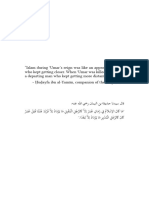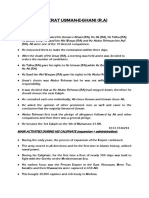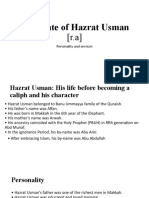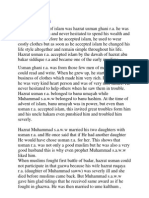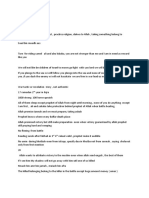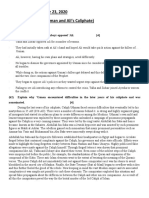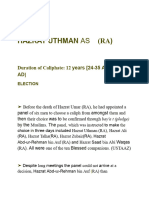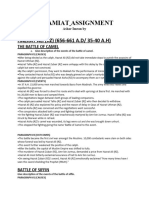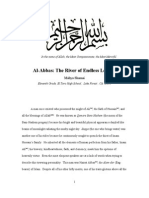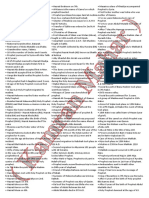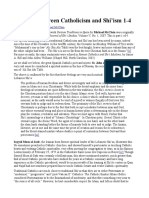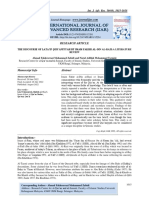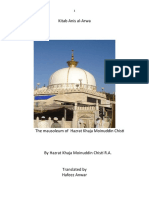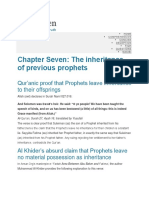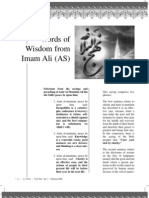Q2.
Write an account on the martyrdom of Hazrat Usman
(RA).
The martyrdom of Hazrat Usman (RA), the third Caliph of Islam, remains
one of the most painful events in Muslim history. His rule lasted twelve
years and was marked by great expansion, but also by growing opposition,
fueled largely by propaganda and conspiracies.
A major instigator was Abdullah ibn Saba, a Jewish convert who pretended
to accept Islam but worked to create division among Muslims. He spread
false ideas, claiming that Hazrat Ali (RA) was the rightful Caliph and
accused Hazrat Usman (RA) of injustice and nepotism. Ibn Saba’s
followers travelled to provinces like Kufa, Basra, and Egypt, spreading lies
and turning people against the Caliph. The Qur’an warns against such
mischief: “And do not obey every worthless habitual swearer, a
slanderer, going about with malicious gossip” (Qur’an 68:10–11).
The rebels accused Hazrat Usman (RA) of appointing relatives as
governors, of favoritism in distributing land and wealth, and of introducing
innovations like the second Friday azan. They also opposed his decision to
standardize the Qur’an by burning variant manuscripts, though it was done
to preserve unity. These accusations spread unrest, and large groups of
rebels marched towards Madinah, demanding his resignation.
When the rebels reached Madinah, companions like Hazrat Ali (RA), Talha
(RA), and Zubair (RA) advised Hazrat Usman (RA) to resist, but he refused
to shed Muslim blood. The Prophet ﷺhad already foretold his
martyrdom, telling him: “O Uthman, perhaps Allah will clothe you with a
shirt, and if the hypocrites demand that you remove it, do not remove it until
you meet Me” (Hadith, Musnad Ahmad). Hazrat Usman (RA) remembered
this and chose patience.
Finally, the rebels surrounded his house for many days, cutting off water
and food. Despite hardships, he continued to lead Muslims with kindness.
On the 18th of Dhul-Hijjah, 35 AH, while reciting the Qur’an, the rebels
�broke into his house and martyred him. His blood fell upon the verse: “So
Allah will suffice you against them, and He is the Hearing, the
Knowing” (Qur’an 2:137).
Thus, the martyrdom of Hazrat Usman (RA) was the result of Abdullah ibn
Saba’s propaganda, false accusations, political unrest, and the Caliph’s
own refusal to fight against Muslims. His tragic death marked the beginning
of great trials in the Muslim Ummah.
b, Why Hazrat Usman RA did not allowed Hazrat Ali
RA to raise the sword against the Hippocrates? [4]
Hazrat Usman (RA) did not allow Hazrat Ali (RA) and other
companions to raise the sword against the hypocrites for several
reasons.First, he remembered the Prophet ’ﷺs advice that he
would be tested with a “shirt” (leadership) and should not remove
it even under pressure. Second, he feared that fighting the rebels
would cause large-scale bloodshed among Muslims, which he
wanted to avoid. Third, he trusted that Allah would judge and
punish the wrongdoers. Fourth, he chose patience and martyrdom
over civil war, fulfilling the Qur’anic principle: “And be patient, for
surely Allah is with the patient” (Qur’an 8:46).













